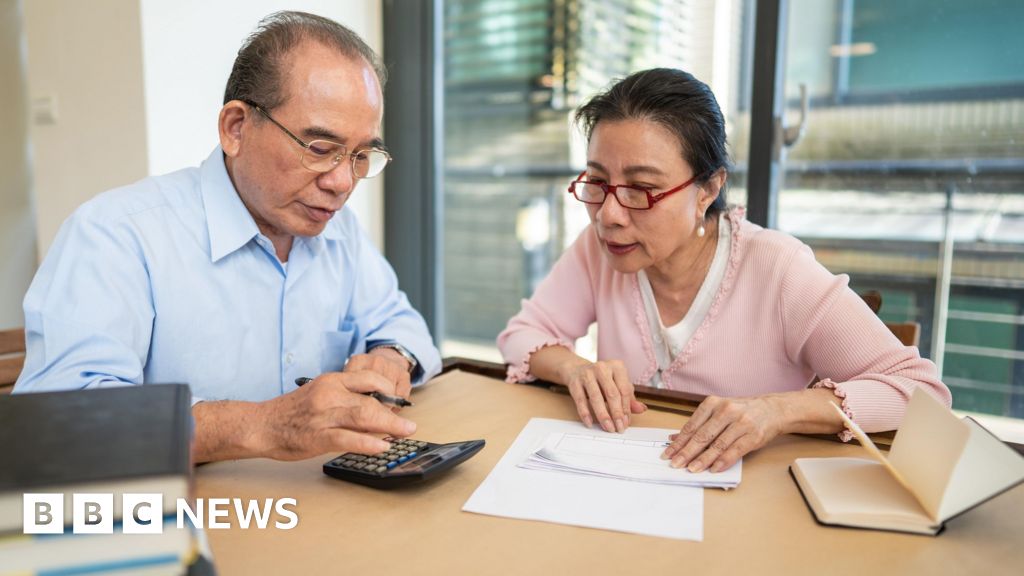The Treasury expects the new full state pension to be boosted above inflation by more than £400 a year in cash terms.
The internal working calculations seen by the BBC reflect the near certainty that the state pension will be increased by average earnings figures released next week.
This is due to the triple lock, which means the state pension increases every April by whatever number is highest out of inflation, average wage increase, or 2.5%.
The news comes as the government faces a backlash over its decision to cut the winter fuel payment for most pensioners.
The increase will take the full state pension for men who were born after 1951 and women born after 1953 to around £12,000 in 2025/26, after the £900 increase last year.
Pre-2016 retirees, who may have been eligible for the secondary state pension, are likely to see at least a £300 a year increase in the basic state pension to £9,000 in 2025/26 under the old system.
The final decision on the uprating will be made by Secretary of State Liz Kendall ahead of the Budget next month, but on Monday Chancellor Rachel Reeves reiterated the government’s backing for the Triple Lock until the end of this Parliament.
The commitment is an expensive election promise made by all the main parties on the £130bn a year state pension bill.
The government has been keen to point to the above inflation generosity of the Triple Lock as a counterweight to its decision to scrap the Winter Fuel Allowance for most households.
Campaigners and opposition parties say not enough is being done to help hundreds of thousands of pensioner households, especially in rural areas, who live below the poverty line, yet will still lose their winter payment.
Former pensions minister Sir Steve Webb has calculated 1.6 million older people living below the “poverty line” could be at risk of being stripped of their winter fuel payments.

